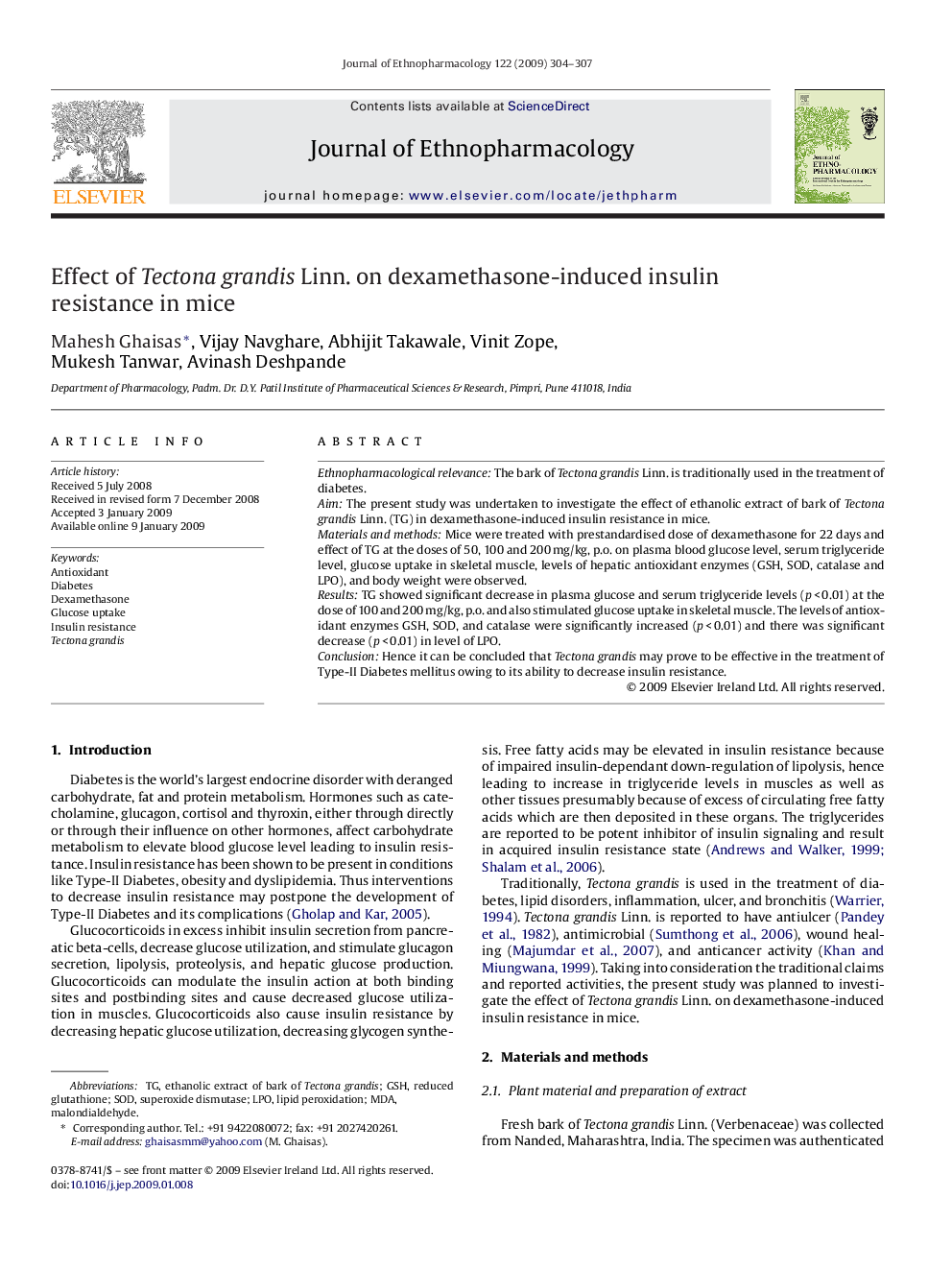| Article ID | Journal | Published Year | Pages | File Type |
|---|---|---|---|---|
| 2547011 | Journal of Ethnopharmacology | 2009 | 4 Pages |
Ethnopharmacological relevanceThe bark of Tectona grandis Linn. is traditionally used in the treatment of diabetes.AimThe present study was undertaken to investigate the effect of ethanolic extract of bark of Tectona grandis Linn. (TG) in dexamethasone-induced insulin resistance in mice.Materials and methodsMice were treated with prestandardised dose of dexamethasone for 22 days and effect of TG at the doses of 50, 100 and 200 mg/kg, p.o. on plasma blood glucose level, serum triglyceride level, glucose uptake in skeletal muscle, levels of hepatic antioxidant enzymes (GSH, SOD, catalase and LPO), and body weight were observed.ResultsTG showed significant decrease in plasma glucose and serum triglyceride levels (p < 0.01) at the dose of 100 and 200 mg/kg, p.o. and also stimulated glucose uptake in skeletal muscle. The levels of antioxidant enzymes GSH, SOD, and catalase were significantly increased (p < 0.01) and there was significant decrease (p < 0.01) in level of LPO.ConclusionHence it can be concluded that Tectona grandis may prove to be effective in the treatment of Type-II Diabetes mellitus owing to its ability to decrease insulin resistance.
